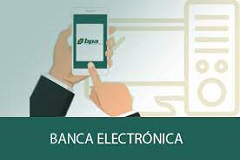Electronic banking and its relationship with customers
Keywords:
electronic banking, magnetic cards, customers, BPA, products and servicesAbstract
The work entitled ¨Electronic Banking of Banco Popular de Ahorro and its relationship with customers¨, has its origin in the need to increase the income of Banco Popular de Ahorro (BPA) for the concept of the offer of Electronic Banking services, as well as contributing to the quality of the service and to the banking and computerization of society. As a result of the VIII PCC Congress and the implementation of the Ordinance Task, the Cuban population goes through a period of economic organization, highlighting the technological values for the economic and social development of the country, with a view to increasing the standard of living of the population. However, there are people registered in the BPA and other non-customers, who have not been established as subjects of Digital Banking, identifying in this work the causes that affect Branch 5892, for which methods and techniques were used that allowed obtaining information from specialists and external clients, as well as the analysis of statistical data. All of the aforementioned allowed to carry out the diagnosis that causes the problematic situation raised and to propose a plan of measures directed to the executors and those responsible for its optimal compliance, capable of responding to the transformations that the Bank assumes in Cuba.
References
Banco Popular de Ahorro. (2018). Manual de Instrucciones y procedimientos. La Habana. Cuba. Recuperado de https://www.bancaremota.com.
Banco Popular de Ahorro. (2022). Manual de Instrucciones y procedimientos. La Habana. Cuba. Recuperado de https://www.bancaremota.com
Banco Popular de Ahorro de Camagüey. (2022). Carpeta Gerencial Banca Electrónica. Recuperado de https://www.bancaremota.com
Francia, rtvenoticias (2016). Diramores el principio del fin del dinero en efectivo. Recuperado de https://wwwrtve.es.economia
Marrero, Á. (2022). El fin del dinero en efectivo. Estos países están a un paso de conseguirlo. Recuperado de https://www.eleconomista.es.noticias
Varoufakis, Y. (2015). Economía sin corbata: Conversaciones con mi hija. Barcelona, España: Planeta. Recuperado de https://wwwplanetadelibros.com

Downloads
Published
How to Cite
Issue
Section
License

This work is licensed under a Creative Commons Attribution-NonCommercial-NoDerivatives 4.0 International License.
- Sending a contribution to the Cuban Magazine of Finance and Prices (RCFP) implies a non-exclusive assignment of rights, which includes: Reproduce the Article in whole or in part and communicate the Article to the public in print or electronic format, combined or not with the works of third parties, such as by making the Article available to the public via the Internet or any other network, as part of a database, with on-line or off-line access, for use by third parties; Translate the Article into other languages and release the translation to the public; Create adaptations, summaries, or excerpts of the Article and other derivative works thereof, and exercise all of your rights in such adaptations, summaries, excerpts, and derivative works; Include the Article, either in its translated, adapted or summarized version, totally or partially, in a computerized database and make it available to third parties; Include the Article, totally or partially, either in its translated, adapted or summarized version, in a selection or compilation of texts; Rent or lend the Item to third parties; Reproduce the Article by means of reprography, without prejudice to legal limitations.
The Author of articles published in the Cuban Magazine of Finance and Prices (RCFP) may exercise the following rights:
- Reproduce the Article, totally or partially, and disseminate its content or make it available to the public, in printed or electronic format, as part of a teaching content or as a compilation, for use in the academic or research field in the institution to the one to which the Author belongs or in those institutions to which he belongs.
- Publish the Article on the Internet or authorize the Author's institution (or any other appropriate organization) to do the same, immediately from the date of publication of the Article in the journal: within the institution's closed network (p. eg, the intranet); or in publicly accessible institutional repositories or centrally organized repositories, provided that a link to the Article is included on the journal's website.
- Grant to the Author's own institution (or any other appropriate organization) the authorization to reproduce the Article in order to prevent its deterioration or, if the original is in an obsolete format or the technology to use it is not available, in order to ensure that the Article remains available for teaching or research purposes;
- Present the Article at a meeting or conference, and distribute copies of the Article to those attending the event.
- Grant end users at the Author's own institution (or any other appropriate organization) permission to copy, use, transmit, and publicly perform the work and to create and distribute derivative works.



